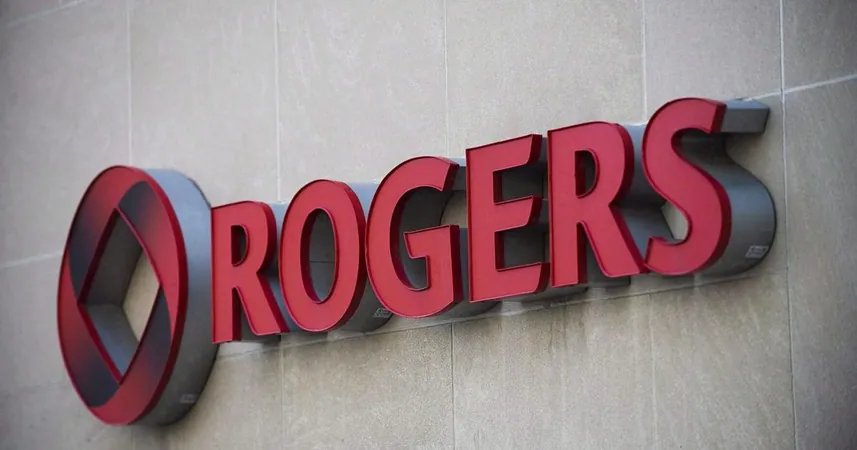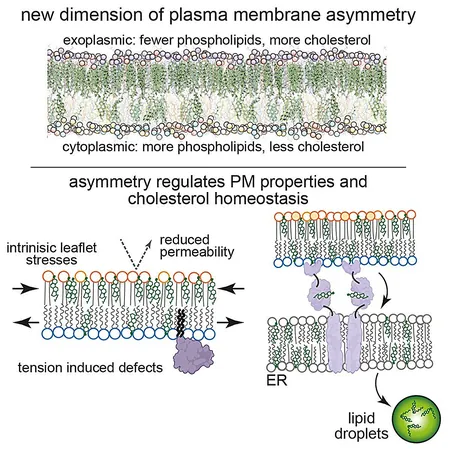
Housing Wars Heat Up as Carney, Singh, and Poilievre Unveil Competing Plans Ahead of April Election!
2025-03-31
Author: Michael
As the countdown to Canada's April 28 federal election intensifies, the three main party leaders are locking horns over housing policies, each crafting bold pledges aimed at addressing the nation’s escalating crisis.
Liberal Leader Mark Carney and NDP Leader Jagmeet Singh made headlines Monday with their ambitious housing commitments, while Conservative Leader Pierre Poilievre unveiled a controversial plan to create a 'national energy corridor' across the country.
Mark Carney's Liberal Housing Platform
In a move that signals his commitment to overshadow U.S. economic threats, Mark Carney presented the Liberal party's housing platform at the College of Carpenters and Allied Trades in Vaughan, Ontario, asserting that the current housing crisis can only be resolved through a vigorous construction spree. 'We are facing the biggest crisis of our lifetimes, and we are going to build our way out of it,' he declared, promising to halve municipal development charges for five years and establish a federal agency to expedite residential construction.
Carney aims to double the current housing construction rate to meet the target of providing 500,000 homes per year over the next decade. A key feature of his platform is the proposed 'Build Canada Homes' entity, which would take over some responsibilities from the Canada Mortgage and Housing Corporation and focus on developing affordable housing on federal lands. Experts have pointed out the potential of utilizing 'lazy land,' such as underutilized federal properties, to accommodate this ambitious goal. A recent analysis identified sufficient federal land to house an estimated 750,000 people.
Pierre Poilievre's Conservative Alternative
Meanwhile, Conservative Leader Pierre Poilievre has been critical of the Liberal approach, labeling it 'overly bureaucratic.' Presenting an alternative strategy, he proposed tax breaks for new homebuyers and plans to waive the GST for homes priced below $1.3 million, effectively aiming to stimulate the housing market through fiscal incentives. Poilievre has also committed to fast-track approvals for energy infrastructure development, arguing that this will enhance Canada’s independence and boost exports amid growing pressures from U.S. economic policies.
Jagmeet Singh's NDP Vision
Jagmeet Singh is also making waves with his housing promises. His plan includes building over 100,000 rent-controlled homes on suitable federal land and retrofitting 3.3 million homes across Canada, targeting energy efficiency improvements for low-income households. Singh has pledged $1 billion to acquire more land for construction and suggests funding for retrofits will come from reducing federal subsidies to the fossil fuel industry, potentially saving $1.8 billion annually.
A Stark Choice for Voters
The differing approaches illustrate a stark choice for Canadian voters: between Carney’s intensive construction pledge, Singh’s socially-focused housing reforms, and Poilievre’s market-driven plans aimed at deregulation and immediate economic relief. With looming U.S. tariffs and an expiring pause on prior tariffs, the stakes have never been higher for these leaders as they vie for the support of voters worried about housing affordability and availability.
As election day nears and polling data begins to reveal voter sentiment, the effectiveness of these strategies will be tested, with all parties needing to maintain a balance between immediate solutions and long-term growth in addressing one of the most pressing issues facing Canadians today. Will these ambitious plans resonate with voters? Only time will tell!









 Brasil (PT)
Brasil (PT)
 Canada (EN)
Canada (EN)
 Chile (ES)
Chile (ES)
 Česko (CS)
Česko (CS)
 대한민국 (KO)
대한민국 (KO)
 España (ES)
España (ES)
 France (FR)
France (FR)
 Hong Kong (EN)
Hong Kong (EN)
 Italia (IT)
Italia (IT)
 日本 (JA)
日本 (JA)
 Magyarország (HU)
Magyarország (HU)
 Norge (NO)
Norge (NO)
 Polska (PL)
Polska (PL)
 Schweiz (DE)
Schweiz (DE)
 Singapore (EN)
Singapore (EN)
 Sverige (SV)
Sverige (SV)
 Suomi (FI)
Suomi (FI)
 Türkiye (TR)
Türkiye (TR)
 الإمارات العربية المتحدة (AR)
الإمارات العربية المتحدة (AR)